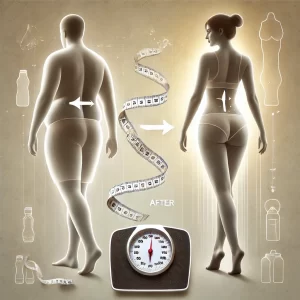Do’s and Don’ts of the Alkaline Diet: How to Balance Your pH for Weight Loss
Introduction
The Alkaline Diet promotes a balanced approach to eating by focusing on alkaline-forming foods, such as fruits, vegetables, nuts, and seeds, while limiting acidic foods like meat, dairy, and processed snacks. This balance is thought to support overall health and aid in weight loss.  To help you navigate the Alkaline Diet effectively, here are the essential do’s and don’ts you need to know for success.
To help you navigate the Alkaline Diet effectively, here are the essential do’s and don’ts you need to know for success.
Do’s of the Alkaline Diet
1. Do Focus on Plant-Based, Alkaline-Forming Foods
The cornerstone of the Alkaline Diet is to consume more alkaline-forming foods like fruits, vegetables, and plant-based proteins. These foods are naturally low in calories and rich in vitamins, minerals, and antioxidants. By filling your plate with nutrient-dense, alkaline-forming foods, you’ll support weight loss while providing your body with essential nutrients.
2. Do Stay Hydrated with Alkaline Water
Staying hydrated is important for weight loss and overall health. Drinking plenty of water, especially alkaline water, can help balance your body’s pH and flush out toxins. Alkaline water is believed to reduce acidity in the body, although regular water is also beneficial for hydration and digestion. Aim to drink at least 8 glasses of water a day to stay hydrated and support your weight loss efforts.
3. Do Eat a Variety of Vegetables
Vegetables are the backbone of the Alkaline Diet, providing essential vitamins, minerals, and fiber. Eating a variety of vegetables, especially leafy greens like spinach, kale, and broccoli, helps keep your meals interesting and ensures that you’re getting a wide range of nutrients. Try to include vegetables in every meal to maximize the benefits of the Alkaline Diet.
4. Do Include Healthy Fats
While the Alkaline Diet minimizes processed fats and oils, it still encourages the consumption of healthy fats from sources like avocados, nuts, seeds, and olive oil. These healthy fats are important for supporting metabolism, promoting satiety, and improving overall health. Include moderate amounts of these fats in your meals to balance your macronutrient intake and keep your energy levels stable.
5. Do Prepare Meals in Advance
Meal planning is essential for sticking to the Alkaline Diet. Since the diet focuses on whole, unprocessed foods, it may require more preparation time than typical diets. To stay on track, prepare your meals in advance and batch-cook foods like grains, legumes, and vegetables. Having healthy, alkaline-forming meals ready to go will make it easier to follow the diet consistently.
6. Do Listen to Your Body’s Hunger Signals
Mindful eating is a key principle of the Alkaline Diet. Listen to your body’s hunger and fullness cues, and avoid eating out of boredom or stress. By paying attention to how  your body feels, you’ll be able to make better food choices and avoid overeating, which is crucial for weight loss. Eating mindfully can help you develop a healthier relationship with food and support long-term success.
your body feels, you’ll be able to make better food choices and avoid overeating, which is crucial for weight loss. Eating mindfully can help you develop a healthier relationship with food and support long-term success.
Don’ts of the Alkaline Diet
1. Don’t Overconsume Acid-Forming Foods
The Alkaline Diet encourages you to minimize or eliminate acid-forming foods like processed meats, dairy products, refined sugars, and alcohol. These foods can increase acidity in the body, leading to inflammation and weight gain. Avoid relying on these foods and focus on nutrient-dense, alkaline-forming options instead. If you do eat acid-forming foods, aim to balance them with alkaline foods.
2. Don’t Skip Meals
Skipping meals can lead to overeating later in the day and may slow down your metabolism. The Alkaline Diet promotes regular, balanced meals that include plenty of fruits, vegetables, and plant-based proteins. By eating regular meals, you’ll maintain stable energy levels and avoid the temptation to reach for processed snacks. Plan your meals so you never feel too hungry or deprived.
3. Don’t Forget to Monitor Your Protein Intake
Since the Alkaline Diet limits animal-based proteins, it’s important to make sure you’re getting enough protein from plant-based sources. Foods like lentils, beans, quinoa, and nuts can provide the protein your body needs to maintain muscle mass and support metabolism. Don’t neglect this essential nutrient—ensuring adequate protein intake is key to a balanced diet and effective weight loss.
4. Don’t Rely on Packaged, Processed Foods
The Alkaline Diet discourages the consumption of processed foods, which are often high in refined sugars, unhealthy fats, and artificial additives. These foods can promote acidity in the body and lead to weight gain. Instead, focus on whole, natural foods that support your health and provide  the nutrients your body needs. Fresh fruits, vegetables, and whole grains should be your go-to choices.
the nutrients your body needs. Fresh fruits, vegetables, and whole grains should be your go-to choices.
5. Don’t Expect Rapid Weight Loss
The Alkaline Diet promotes gradual, sustainable weight loss by focusing on whole foods and balanced nutrition. While you may not see dramatic weight loss immediately, sticking with the diet over time will yield long-term results. Avoid fad diets that promise quick fixes and trust the process of steady, healthy weight loss through proper nutrition.
6. Don’t Forget to Stay Active
Physical activity is an important part of any weight loss plan, and the Alkaline Diet is no exception. Regular exercise supports metabolism, helps burn calories, and promotes overall health. Pairing the Alkaline Diet with a consistent exercise routine will help you achieve your weight loss goals faster. Whether it’s walking, yoga, or strength training, aim to stay active most days of the week.
Conclusion
The Alkaline Diet offers a plant-based, whole-foods approach to weight loss by emphasizing alkaline-forming foods and minimizing acid-forming ones. By following these do’s and don’ts, you can successfully balance your body’s pH, promote healthy digestion, and achieve sustainable weight loss. Focus on nutrient-dense foods, avoid processed snacks, and stay consistent with your meal planning and exercise routine to see long-term results.